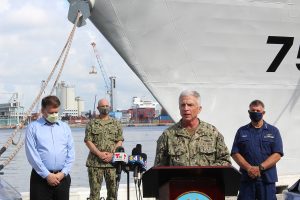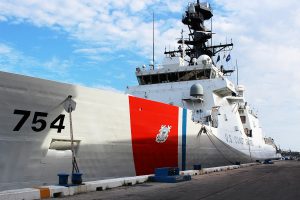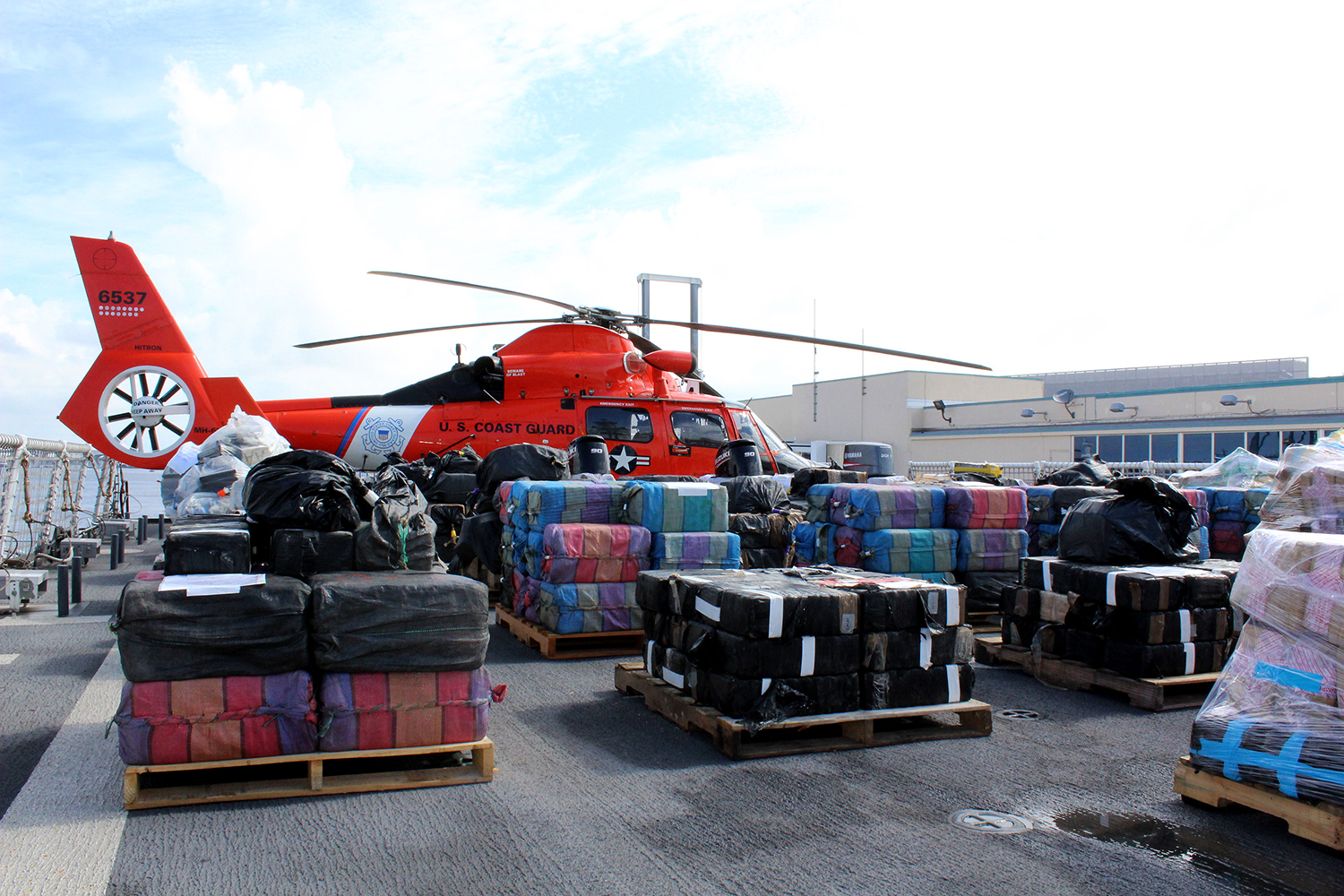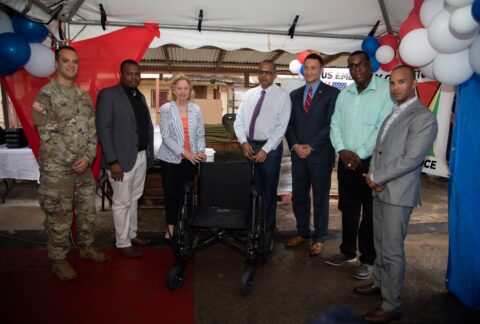Units assigned to U.S. Southern Command’s (SOUTHCOM) enhanced counternarcotics operations, which launched on April 1, continue to support operations, in cooperation with 22 partner nations, to increase surveillance, disruption, and seizures of drug shipments and strengthen eradication efforts in the Caribbean Sea and Eastern Pacific Ocean. The U.S. has deployed additional Navy destroyers, combat ships, aircraft, and helicopters; Coast Guard cutters; and Air Force surveillance aircraft, doubling capabilities in the region.
On June 9, several media outlets gathered at Port Everglades, Florida, as the crew of U.S. Coast Guard Cutter (USCG) James offloaded 13 metric tons of drugs, while officials presented a summary of what can be considered the biggest success story so far in this new pan-regional, counternarcotics effort.

“The United States Coast Guard Cutter James offloaded 23,000 pounds [10, 433 kilograms] of cocaine and 6,900 pounds [3,130 kilograms] of marijuana, worth an estimated $438 million, seized in international waters in the Eastern Pacific Ocean and the Caribbean Sea,” said U.S. Acting Secretary of Homeland Security Chad Wolf.
Four U.S. Coast Guard cutters and two U.S. Navy ships seized the drugs during 11 suspected drug smuggling vessel interdictions off the coasts of Mexico, Central and South America, between April and May. “Navy and Coast Guard vessels worked cooperatively to stop the flow of illegal narcotics on the high seas before they could be delivered to Central America and continue their journey to the United States,” said Captain Jeffrey Randall, commanding officer of USCG Cutter James.
A deadly relationship
According to U.S. Navy Admiral Craig S. Faller, commander of SOUTHCOM, “the cocaine that arrives in Central America and Mexico from South America triggers violence, corruption, extortion, and instability, driving families from their homes to seek safe haven elsewhere.” Recent reports from the United Nations (U.N.) show a relationship between homicide and known drug trafficking routes. High drug trafficking routes, one U.N. report indicates, like those on the coastlines of Honduras and Guatemala, and on their shared border, have murder rates more than twice as high than those in areas with lower or no known trafficking.

According to a USCG release, the massive profits from cocaine trafficking allow cartels to diversify and fund other illicit activities, including opioid, synthetic opioid, and methamphetamine trafficking. “This scourge is devastating American cities and rural towns, resulting in more than 70,000 drug-related deaths in the United States in 2019. Attacking the cartels’ profit sources in maritime transit zones, where they are most vulnerable, is part of a holistic approach to mitigate their influence enabled by cocaine smuggling,” said Admiral Karl Schultz, USCG commandant. “Bottom line: At sea interdictions of pure cocaine are the most effective ways to limit cartels from trafficking their entire spectrum of illicit products.”
A reliable maritime source
According to the same USCG press release, as a member of the armed services, law enforcement, and intelligence communities, the USCG is uniquely suited to operate with, and provide capability and capacity development programs to Latin American and Caribbean nations. “The USCG continues to expand international training team capacity to assist partner nations in developing organic maritime governance. This has the combined benefit of helping address challenges and threats to our own national security interests,” said Adm. Schultz.
The USCG commandant also said that his organization seeks to strengthen ties with source and transit zone nations to increase willingness and capability to reduce the production and trafficking of illicit drugs.
“Success stories like Colombia, Costa Rica, and Panama — who are fully involved in this fight — require continued, concerted effort through a whole-of-U.S. government approach,” added Adm. Faller. “To the enemy, the transnational criminal organizations, I say, ‘We are ready’ (Estamos listos), and we are going to relentlessly put pressure on these networks, which are destroying democracies and impacting homeland security, and killing citizens on the streets of Bogotá, Tegucigalpa, and here in Miami, Pittsburgh, L.A. [Los Angeles], and elsewhere. We will disrupt and defeat these networks.”








